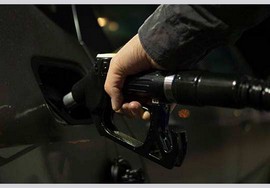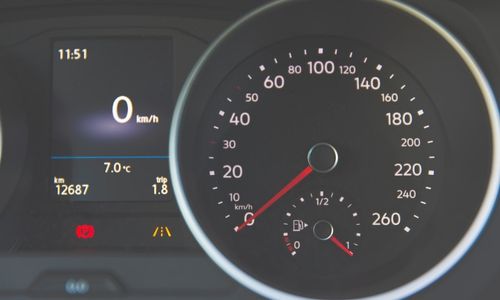
LPG Cars: Complete Guide to Liquefied Petroleum Gas Cars
Last updated September 30, 2022
Although both petrol and diesel prices have hit unprecedented highs in 2022, you may have noticed some curiously lower figures advertised alongside them at selected petrol stations.
This third price is less commonly seen on forecourt signs - and usually denotes LPG (Liquefied Petroleum Gas). However, you might be surprised to learn that despite the attractive pricing, less than 1% of UK cars currently utilise LPG fuel.
Has this lesser-known fuel type piqued your interest? Read on – and we’ll explain everything you need to know. We’ll start by defining exactly what LPG is, before covering its benefits, drawbacks, compatibility with popular car makes and models - and how to convert your car to take LPG.
Value your car in under 30 seconds
What is LPG in Cars?
LPG is a liquid gas (also referred to as butane, propane and Autogas) that can be used as automotive fuel. It is clean burning and significantly cheaper than petrol and diesel. Although there are only a small number of LPG cars available in the UK’s new and second-hand marketplace, most petrol cars can be converted to accept LPG fuel.
Is Liquified Petroleum Gas the same as propane?
Yes, LPG and propane are terms that are often used interchangeably – although LPG may also contain butane and isobutane. These are all flammable hydrocarbon gases with the same chemical formulae (C3H8), that are labelled ‘LPG’.
How is LPG made?
LPG is the by-product of processing natural gas (and refining crude oil). Historically wasted, LPG is now known as a low-carbon fuel. LPG is considered a ‘liquid gas’, as it turns to liquid when exposed to pressure or cooling, allowing it to be stored in tanks.
What are the UK LPG regulations?
At present, there is no statutory regime in the UK for assessing the safety of aftermarket LPG installations, whether before road use, or as part of the annual MOT test. However, all vehicles used on public roads must satisfy the Road Vehicles (Construction and Use) Regulations.
Are LPG cars more expensive to insure?
In the majority of cases, converting your car to accept to LPG fuel will not adversely affect your insurance premiums. What’s more, after converting your vehicle, you may also qualify for a reduction in road tax, as LPG fuel burns cleaner.
What are the pros and cons of LPG cars?
If you are thinking about either purchasing an LPG car or converting your existing vehicle to receive LPG fuel, it is important take all variables into account before committing. With this in mind, let’s explore some of the potential benefits - and drawbacks LPG vehicles can bring about:
Advantages of LPG in cars
As we’ve mentioned, LPG fuel is significantly cheaper than petrol and diesel. This is due to its lower fuel duty rate. It’s also eco-friendly; after LPG conversion, a typical car’s emissions will drop by around 20% - and particle emissions will be cut to virtually zero.
LPG conversions can also extend your engine’s lifespan. Dual-fuel vehicles run 50/50 with standard and LPG fuel. A reduction in standard petrol or diesel use can reduce engine wear.
So long as the conversion is carried out by an approved company, you may also qualify for a saving on Vehicle Exercise Duty (VED). LPG-converted cars can be classed as ‘alternatively-fuelled’ vehicles, which entitles drivers to a £10 annual saving on their road tax.
Not only that, a more fuel-efficient car, with a better-preserved engine will typically have a higher resale value – something worth thinking about if you plan to sell your car anytime soon.
Problems with LPG cars
Converting your petrol vehicle to accept LPG fuel typically costs between £1,200-£1,500. Many drivers will struggle to afford this – and the overall costs sometimes exceed the car’s value. At present, there are no real Government grants or incentives to encourage drivers to convert to LPG – the emphasis is placed much more on electric cars.
The LPG conversion process requires extensive work that can take 2-4 days, so bear in mind that during this time, you may have to make alternative transport arrangements.
As part of the process, the mechanic will install a secondary fuel tank, which is usually placed in the boot. This will invariably take up a good chunk of your car’s storage space. However, technology has improved, meaning the newer models don’t hog quite as much room as the earlier ones.
You should also bear in mind that as with any aftermarket tweaks, there’s a chance your vehicle will develop issues following LPG conversion. With that said, if you choose a reputable garage, this is less likely to occur.
And, although LPG prices remain favourable for the time being, there is still the risk that the Government will raise its fuel duty at some point in the future.
What are the restrictions on LPG cars?
You cannot drive an LPG-powered car through the Eurotunnel (even if the tank has been emptied or disconnected). There are also restrictions on LPG vehicles in selected underground carparks in Europe.
What is LPG conversion for cars?
LPG conversion refers to the installation of a secondary fuel system that allows your vehicle to run on LPG fuel. Following an LPG conversion, the capability to take the original fuel type (petrol or diesel) is retained – and your vehicle can be classed as ‘dual fuel’. You can toggle between running your vehicle on either fuel type at the touch of a button!
Is LPG safe for cars?
UK Fire Service tests concluded that in the event of a serious fire, passengers had three times longer to evacuate an LPG-fuelled vehicle than a petrol equivalent. Studies by the TNO in the Netherlands also concluded that LPG vehicles were safer in accidents than those using petrol.
Is LPG still available for cars?
Dacia is currently the only manufacturer to offer LPG vehicles to the UK market. Dual-fuel cars that have been converted often appear on the second-hand market. Manufacturers such as Volvo, Vauxhall and Proton previously sold factory-fit LPG models, but these were discontinued due to poor sales.
Which cars use LPG?
Although there are no new LPG cars on the market in the UK, check out the second-hand car-market and you’re likely to find cars from most popular brands that have been LPG converted. You may also occasionally find used factory-fit LPG models such as the Vauxhall Astra Coupe or Volvo S60!
And, of course, numerous manufacturers, including Ford, Subaru, SsangYong and Renault offer LPG models outside the UK market. So, if you’re dead set on LPG and open to importing, this an avenue worth exploring!
What are LPG dual fuel cars?
Dual-fuel cars incorporate a standard diesel engine that has been adapted to burn a combination of diesel and LPG fuel. Replacing diesel fuel with LPG will reduce fuel consumption and emissions. A dual-fuel vehicle may have been factory fitted with an LPG-compatible engine - or converted at a garage after the point of sale.
LPG availability
There are currently 368 UK petrol stations offering LPG fuel to the public. Although available stations are reasonably widespread throughout the UK, LPG drivers must still plan journeys carefully to ensure fuel availability.
Given that there are so few LPG-compatible vehicles on the road, there is little incentive for petrol stations to stock LPG fuel.
To find your nearest LPG station and compare prices, download the AutogasAppUK app (Android only). You can also view the map in your browser.
LPG availability in Scotland, Ireland and Wales
There are approximately 40 LPG filling stations in Scotland, with the highest concentrations in and around Edinburgh and Glasgow. There are around 30 stations in Wales, with higher concentrations around Newport, Cardiff and Swansea. Ireland also has around 30, with the majority in Northern Ireland.
Best cars for LPG conversion?
Virtually any petrol car is suitable for LPG conversion. However, prior to having your car converted for LPG use, you should ensure that the vehicle is otherwise in good condition and assess whether the conversion would be economically viable.
Can I convert my diesel car to LPG?
Yes, you can convert your diesel engine to run off LPG. However, bear in mind that one of the key benefits of diesel is its longer range – and this advantage will be largely lost should you decide to convert to LPG. Diesel to LPG conversion is also typically more expensive, costing around £1,750.
Which fuel type is best for you?
-
Petrol vs LPG
As of September 2022, LPG costs around 75p per litre, while petrol costs £1.68.
LPG is a clean-burning fuel and create 5-7 times less Nitrous Dioxide (NO2) than petrol. What’s more, LPG-fuelled vehicles produce 14% fewer Carbon Dioxide (CO2) emissions than those running petrol.
-
Diesel vs LPG cars
When it burns, LPG produces up to 80% less Nitrous Dioxide (NO2) than diesel. LPG vehicles produce 10% fewer Carbon Dioxide (CO2) emissions than those running diesel. As of September 2022, diesel costs around £1.81 per litre, working out around £1.06 more than LPG fuel!
-
CNG vs LPG cars
CNG or ‘Compressed Natural Gas’ is another alternative fuel that is primarily made of methane. CNG releases less greenhouse gas, while LPG releases CO2 (also a greenhouse gas). CPG is cheaper and cleaner while LPG has a higher calorific value.
However, there is a major caveat for CNG drivers – there are currently only 13 public petrol stations in the UK supplying CNG fuel!
Will LPG be phased out?
The UK government has brought forward its plans to ban the sale of new gasoline and diesel cars and vans to 2030, which is expected to further reduce LPG demand over the coming years. Additionally, the Motor Fuels Group – a major LPG supplier has announced plans to replace all its LPG pumps with EV charge points by 2024.
Is LPG worth it?
LPG is undoubtedly cheaper at the pumps than petrol and diesel. However, if you were thinking about converting your existing vehicle, you need to factor in this cost. A second-hand LPG car could still be a smart investment, providing the vehicle is in full working order.
Simply put, the higher your annual mileage, the more likely switching to LPG will be worth your while. You should also be prepared to trade in the convenience of being able to fuel at any station for better economy.
These benefits are only expected to last several years, as the proposed 2030 diesel and petrol ban is set to seriously damage LPG’s viability. So, if you’re sold on LPG, the time to act is now.
Other Frequently Asked Questions
You don’t need an LPG certificate to sell your car. However, there is a voluntary scheme called the UKPLG Vehicle Register that was launched in 2010 to replace LPG conversion certificates. Registering your vehicle demonstrates to insurers and buyers that your vehicle has been converted safely.
LPG accounts for just 0.2% of UK road fuel demand. This can be attributed to a lack of government incentives to use LPG vehicles, only one manufacturer (Dacia) offering new LPG vehicles, the expense of conversion – and the scarcity of LPG compared to petrol and diesel.
LPG burns cleaner than either petrol or diesel and will therefore cause less wear on your engine’s components. As such, having an LPG vehicle can increase the lifespan of the engine - and reduce maintenance costs.
You can get around 90% the mileage you would from litre of petrol from a litre of LPG and of course the larger the capacity, the further you can drive on a full tank. Remember that although fuelling will be slightly more frequent, this will be offset by significantly lower prices at the pump.




